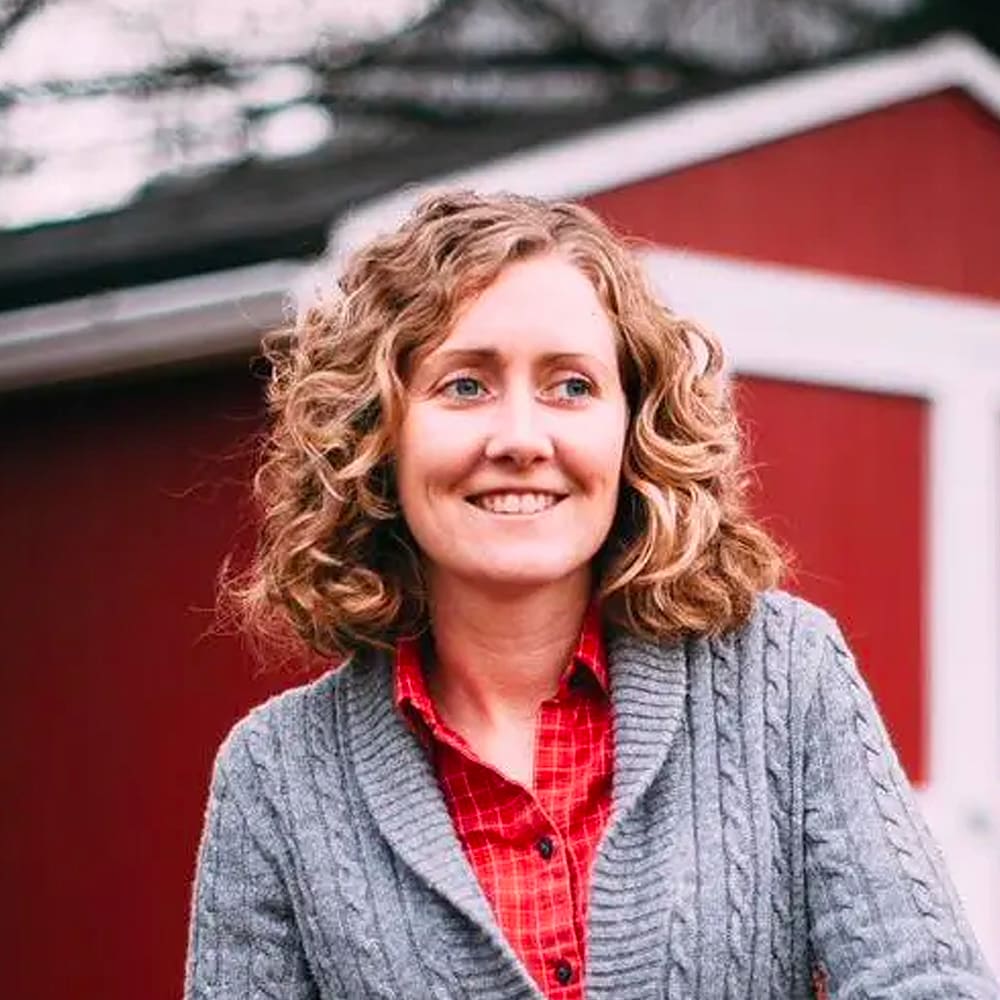O
One of the most profound films in recent years is Jonathan Glazer’s Oscar-winning The Zone of Interest (2023). Adapted loosely from the novel by Martin Amis, The Zone of Interest shows the life of Rudolf Höss, camp commandant at Auschwitz, and his family in German-occupied Poland in 1943. Höss, his wife Hedwig, and their children live in a lovely house with a nice garden, separated from the concentration camp and crematorium by a garden wall. On one side of the wall, life is bourgeois, rich in material goods, and filled with mostly peaceful domesticity. On the other side of the wall, men and women and children are murdered, their goods are taken from them, and ovens burn through the night. The film and novel are fiction, but Rudolf Höss and his family were real and did live in a house adjoining Auschwitz.
The film is shot almost like a documentary. The soundtrack is the noise of shoes on a floor or a dog barking. Most of the scenes take place in the family’s space. We see Höss raising flowers, reading his children bedtime stories, and playing in the river on a family outing. They have a cake for his birthday. The dog is lovable. But it is all quietly unsettling. There is some ambient screaming at night from the other side of the wall. Höss’s wife wears a fur coat taken from someone else. A Jewish servant is reminded that her position is tenuous. Yet such atrocities remain an undercurrent beneath a vicious surface irony. The primary drama for Höss is that his government wants to reassign him. The family’s life is so “perfect” at Auschwitz that his wife refuses to move. Höss experiences personal and marital stress as he attempts to work his connections to stay in Auschwitz, or at least get permission for his family to stay.
If, in the film, the main story for Höss seems to be providing for and pleasing his wife and children, his life and career fit into a much larger and very dark story. A member of the SS, Höss not only oversaw the deaths of 1.1 million people but also worked to make their extermination at Auschwitz more efficient, pioneering the use of Zyklon B and introducing gas chambers and the crematoria. The Zone of Interest demonstrates that for Höss, as for most of his German contemporaries, there was no seeming incompatibility between being a good “family man” and engaging in murderous, criminal activity.
When Conventions Are Corrupted
Participating in the Third Reich’s most heinous project of exterminating the Jewish population—or even simply failing to resist it—seems a failure of basic conventional morality that opposes non-state violence, extreme oppression of other groups, and personal enrichment through criminality. Most people in Western society would agree that it is wrong to murder, wrong to steal, and wrong to make a living doing both. But we know that many, even most, went along with all of that as passive or even active participants. As Hannah Arendt wrote in her 1945 essay “Organized Guilt and Universal Responsibility,” the number of people who, after the war, will be considered “responsible and guilty will be relatively small,” but there will be many “who share responsibility without any visible proof of guilt.” The blood was on nearly everyone’s hands. Rather than understand this widespread negligence as a failure solely of conventional morality, Arendt argues that it could be understood as an outgrowth of conventional morality.
Arendt’s argument begins with the nature of modern, bourgeois morality. This morality is centred on two essential and related priorities: security and family. When we imagine the upright middle-class man, we imagine the family man. Arendt observes that 1940s Western Europeans
had been so accustomed to admire or gently ridicule the family man’s kind concern and earnest concentration on the welfare of his family, his solemn determination to make life easy for his wife and children, that we hardly noticed how the devoted paterfamilias, worried about nothing so much as his security, was transformed under the pressure of the chaotic economic conditions of our time into an involuntary adventurer, who for all his industry and care could never be certain what the next day would bring.
Security for oneself and one’s family became the predominant value; securing it the predominant virtue. This is exactly what the Third Reich exploited.
Arendt explains that “for the sake of his pension, his life insurance, the security of his wife and children, such a man was ready to sacrifice his beliefs, his honor, and his human dignity.” Third Reich officials recognized this. A good family man was “prepared to do literally anything when the ante was raised and the bare existence of his family was threatened.” As long as he was not considered responsible for his acts, he could even justify his actions as good. Arendt explains that this self-justification is why ordinary Germans, who would never simply murder a Jewish neighbour, became the hands and feet of the Holocaust. Vast numbers of people were killed, not by “fanatics,” but by “jobholders and family men.”
Arendt’s assessment may sound extreme, but it is supported by later scholarship. Christopher Browning’s shocking book Ordinary Men (1992) explores how normal German men, too old to have grown up indoctrinated, became willing death squads in Eastern Europe to maintain personal security, conforming to the new society the Third Reich was creating. They participated even when their lives were not on the line but their livelihoods were. Arendt writes that “each time society, through unemployment, frustrates the small man in his normal functioning and normal self-respect, it trains him for that last stage in which he will willingly undertake any function, even that of hangman.” People will do almost anything to keep their job, to keep their house, to get their children into the right school. The recent college admissions scandal, for instance, involved falsified sports records and test scores from parents merely trying to “help” their children. In some cases, the children were unaware that they had not earned admission on their own.
There was no seeming inconsistency in loving your family and killing your neighbour, because your responsibility was not to your neighbour—especially not a neighbour who was perceived as different.
Not only is the family the primary responsibility of the family man, it is nearly the only responsibility. There is an insufficient sense of belonging to, and responsibility for, the wider civic community. Arendt describes “the transformation of the family man from a responsible member of society, interested in all public affairs, to a ‘bourgeois’ concerned only with his private existence and knowing no civic virtue” as an “international modern phenomenon.” Day to day, most of us see ourselves as primarily responsible for ourselves and those closest to us. We are more voters than citizens. In many cases, we would disadvantage our country for the sake of our children. We are far from citizens of a polis who are regularly involved in consequential decisions.
How Big Is Your Zone of Interest?
The issue is not inability to love. As far as we can tell, Höss loved his family. The issue is not an entirely amoral society. Many Germans believed in right and wrong even while they perpetrated crimes against humanity. The issue is responsibility toward the wider human community. If our zone of interest is too small—simply ourselves and our circle of close connections—we will fail to pass the tests presented to us, because we will underestimate our responsibility. Arendt argues that “in one form or another, men must assume responsibility for all crimes committed by men and that all nations share the onus of evil committed by all others.” Wendell Berry expresses a similar sentiment in his essay “A Native Hill.” When he saw himself as a “traveler,” Berry observes, he tended to see evil as other people’s problem. He contrasts this self-perception with his later recognition of responsibility once he settled in his place, writing, “Here, now that I am both a native and a citizen, there is no immunity to what is wrong.” Now that he is fitted into place, he recognizes his responsibility and understands that it is broad.
That sense of responsibility for what happens, even outside one’s home, is significant. For Berry, it was part of growing up and part of belonging to a place. James Baldwin posits that responsibility is an effect of belonging to the national community and the human race. In his essay “Notes on the House of Bondage,” Baldwin writes that “the children are always ours, every single one of them, all over the globe; and I am beginning to suspect that whoever is incapable of recognizing this may be incapable of morality.” A sense of responsibility only for oneself or one’s immediate family is morally insufficient. That was especially true in the Third Reich, Arendt argues, where totalitarianism “completely destroyed the neutral zone in which the daily life of human beings is ordinarily lived,” making “the existence of each individual in Germany depend either upon committing crimes or on complicity in crimes.” But criminality and complicity are not exclusive to totalitarian systems.
Modern society, in general, struggles to feel a sense of real, radical responsibility. Where can this responsibility be found, or what can it be founded on? Who recognizes an obligation to resist or oppose evil? Who can be counted on to care, even when they are not adversely affected? Arendt argues that to be dependable in the fight against any (organized) evil, one needs to have a realization of human depravity. She writes that only on those “who are filled with a genuine fear of the inescapable guilt of the human race, can there be any reliance when it comes to fighting fearlessly, uncompromisingly, everywhere against the incalculable evil that men are capable of bringing about.” It is here that the secular Arendt points us to Christianity as a way of fixing that sense of radical responsibility.
The Possibility of Unconventional Love
The Christian tradition with its recognition of sin encourages the “fear of the inescapable guilt of the human race” that Arendt says is needed to recognize the potential for evil in oneself and others and to feel a dread about it and to create a desire to avoid it. In the Protestant tradition, the emphasis on humanity’s sinfulness is especially pronounced. The first of Martin Luther’s Ninety-Five Theses states that God “willed the entire life of believers to be one of repentance.” John Calvin’s theology hinges on the notion of total depravity. In his sermon “Sinners in the Hands of an Angry God,” Jonathan Edwards warns his listeners that “natural men are held in the hand of God, over the pit of hell.” Yet we know that Germany was full of people who considered themselves Christian and were taught that humans are sinful. It would be very hard to argue that in our society Christians are the people who are most aware of our wickedness or who can be easily brought to contrition. Very often Christians are convinced of our moral superiority and look out in judgment on “the world.”
In many cases, contemporary Christians have sought to make themselves distinct by best embodying the very conventional morality that Arendt describes. Churches do all that they can to emphasize and support healthy marriages and families. Being a good spouse and parent and friend becomes a mark of faith and is considered the best spiritual offence against a hostile world. As good as those objectives are, they require neither biblical injunction nor explanation. The way in which we fulfill our obligations toward those closest to us could plausibly be explained by evolutionary biologists, who argue that all our actions are shaped by achieving good outcomes for our genes. We corroborate their arguments by always putting first the benefit of those closest to us. All too often we do this with confidence that we have somehow set ourselves apart from others. “Even sinners do that,” Jesus says.
The Third Reich was the result, not of people failing to love their children or trying to secure a future for themselves, but of people failing to recognize and love their literal and metaphorical neighbours—much less their enemies. It was a result of believing that we are not responsible for what happens to very many people. It reflected a conventional morality that put providing for the self and family not only at the centre of things but over all other things. Job security was more important than justice. One’s livelihood was more important than other people’s lives. There was no seeming inconsistency in loving your family and killing your neighbour, because your responsibility was not to your neighbour—especially not a neighbour who was perceived as different.
In many of her essays, Arendt longs for a political system more akin to the Greek polis. Within the polis, citizens have a recognized responsibility to each other and their community and are supposed to uphold justice, not just their family name. Socrates venerated Athens and its laws so much that he was willing to be put to death to uphold them, when he could have escaped (and raised his own children). Arendt is right that we lack the virtues of the polis in the present day. But in “Freedom of a Christian,” Martin Luther suggests that Christians need no laws or government, as they are under the lordship of Christ. “A Christian is a perfectly free lord of all, subject to none,” because they do not need to be restrained from wickedness. But despite that liberty and precisely because of the authority of Christ, “a Christian is a perfectly dutiful servant of all, subject to all.” Christians should not require a polis to orient our responsibility, which knows no limit. All our neighbours and even our enemies are entitled to our love.
In practice, however, the “dutiful servant to all” is rare and even then is not always warmly received. If we consider the lives of the saints, we see how often they angered their families and communities. In many cases, they were ostracized not just because they adopted orthodox Christian beliefs but because their actions were not in their family’s best interest. They gave away generational wealth. They refused advantageous marriages. They ended family lines and encouraged those close to them to go into monasteries and convents. They lost status and prestige. They left their hometowns and moved away from aging parents. They spent their lives caring for strangers in strange lands. Actions like these are not easily accepted or encouraged; they are anything but conventional. Nor do we often encounter them.
In The Zone of Interest, Höss is plagued by stomach problems. He has mysterious and severe pain and sometimes vomits for seemingly no reason. As viewers, we suspect that it is because, deep down, he knows that what he is doing is wicked. He may think he is working only to best advantage his family, his top priority, but we know that what he is, and is doing, is evil. Höss’s circumstances and choices are extreme, but most of us also strive primarily for the sake of those closest to us, with minimal consideration of others and little sense of responsibility for people we do not know or do not like. In most cases, we practice neither the responsibility promoted by the polis nor that preached by Luther. We excel in the conventional morality that has unfortunately proved time and again to be an insufficient bulwark against evil. When even our best actions can easily be explained by a natural desire to perpetuate our genes and benefit those closest to us, we might do well to engage in actions that benefit strangers and enemies and cost us or our families something—actions that would require a supernatural explanation.






